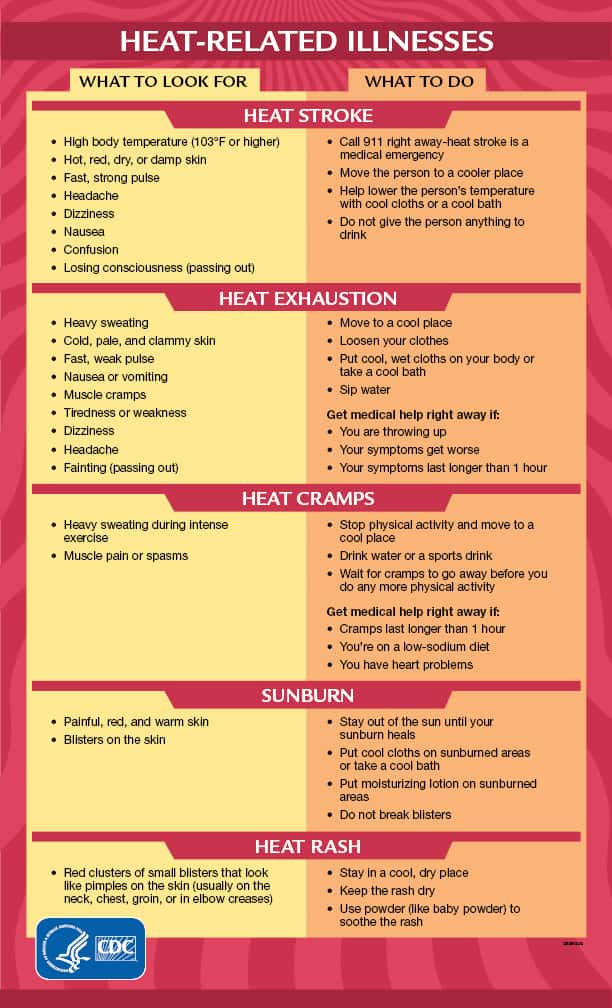
Hot and humid conditions are increasing your risk for heat stress. Heat stroke and heat exhaustion are dangerous. Drinking water can help reduce your risk of heat-related illness. Washington County Public Health Administrator Danielle Pettit-Majewski says everyone needs to be staying hydrated throughout the summer, “Waiting to drink until you’re thirsty is waiting far too long. You need to be continuously hydrated. So typically what our bodies need to be hydrated is half of our bodyweight in ounces. Okay, so if you weigh 200 pounds you should be drinking about 100 ounces of water, that is a regular day. If you are out and you are exercising, or you’re out and you’re doing landscaping, or you’re out, you know, working road construction, you’re going to need more. You’re going to need more because you’re needing to keep your body cool, you’re needing to keep well-hydrated, and so you need to probably increase that significantly.”
Heat stroke can cause body temperature to rise to 103 degrees or higher, a fast pulse, headache, nausea, confusion, and a person may pass out. If you see this call 911 immediately, it is a medical emergency and the person needs to be moved to a cooled place.
Heat exhaustion symptoms include heavy sweating, weak pulse, nausea, muscle cramps, weakness, dizziness, headache and fainting. Someone with heat exhaustion should be moved to a cool place and sip water, seek medical help right away if you are throwing up, symptoms get worse, or if symptoms last more than an hour.

